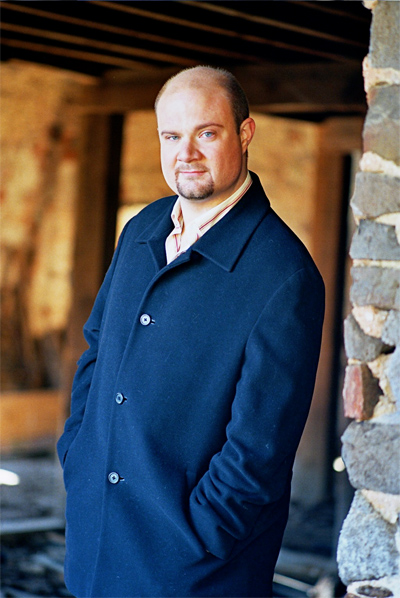Chamber Music Society closes Harris season with an American feast

On Thursday night, the Chamber Music Society of Lincoln Center paid its fifth and last visit of the season to the Harris Theater. The program, titled “American Visions,”was a chronological survey of the nation’s music from the 1860’s to the present.
Pianist Michael Brown opened the evening with Louis Moreau Gottschalk’s The Union, a virtuosic medley of “The Star-Spangled Banner,” “Hail, Columbia,” and “Yankee Doodle,” interspersed with flashy passagework aplenty. Half the battle with Gottschalk is playing him with utter conviction. Brown won that battle, and brought a light touch to its lyrical moments and beautifully shaded pedaling to its more rambunctious outer sections.
Dvorak may not have been a native son of America, but his Violin Sonatina in G major is even more American-sounding than his more famous “New World” symphony and “American” string quartet. And it is a much more substantial piece than its diminutive genre name might suggest.
Brown was joined by violinist Chad Hoopes in a performance that milked every opportunity to provide tempo and texture contrast, providing just the right amount of sentimentality. Their lyrical interplay in the second movement—popularized by Fritz Kreisler as “Indian Lament”—was excellent, but most impressive was the delicious bit of hesitation they introduced to the transition from back into major in the trio of the scherzo.
Baritone Randall Scarlata and veteran pianist Gilbert Kalish presided over the rest of the evening. They closed the first half of the program with a selection of Ives songs. There wasn’t much subtlety to their interpretations, but arguably this music doesn’t require any.
Over-the-top works just fine for the cowboy ballad “Charles Rutlage,” which Scarlata sang with appropriate Western twang. Both men were stern and stirring in Ives’ version of “In Flanders Fields.” And Scarlata conveyed the humor of “The Circus Band.”
The entire second half was dedicated to George Crumb’s American Songbook II: A Journey Beyond Time, a setting of nine African-American spirituals for vocalist, piano, and a gargantuan battery of percussion instruments. For this piece, Scarlata and Kalish were joined by percussionists Christopher Froh, Ayano Kataoka, Eduardo Leandro, and Ian David Rosenbaum.
In this work, the singer serves as something of a straight man—delivering the spirituals in their original form—while all around him, the piano and percussion produce the wildest of effects. The wackiest of these include shofar blasts in “Joshua Fit de Battle Ob Jerico” and steel drums in “Steal Away.” But some effects are dark reminders of the history behind these spirituals: such as the interweaving of “Go Down Moses” with the tolling of the Dies Irae.
The musicians conveyed a consistent thoughtfulness and commitment throughout. It was evident in the care with which the players had been spaced onstage to allow all parts to register in the Harris Theater’s acoustics. It was there in the earnestness Scarlata brought to his singing of the spirituals, and in the close attention with which the players coordinated their entrances.
With the exception of the Ives songs, it is rare to hear to this music in concert at all. But it is nearly impossible to hear it played with more love and dedication than this.
Posted in Performances




